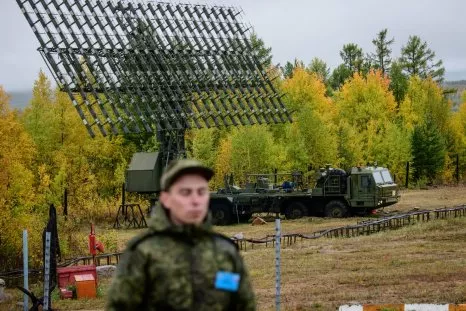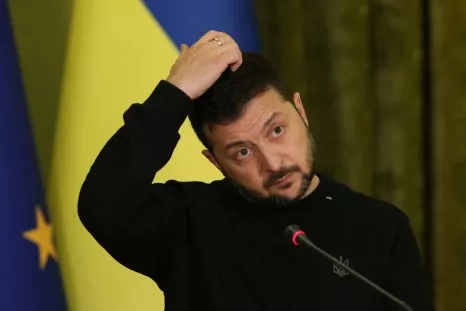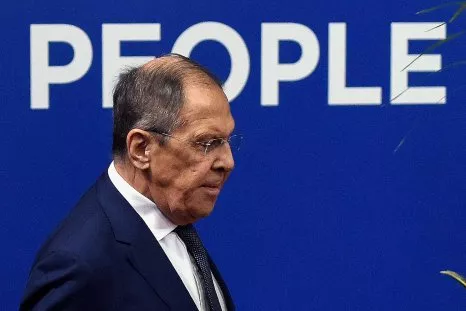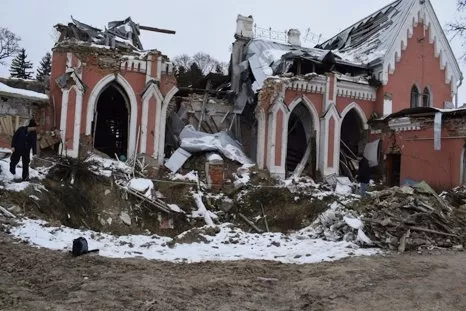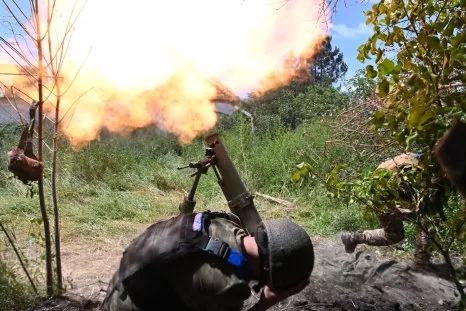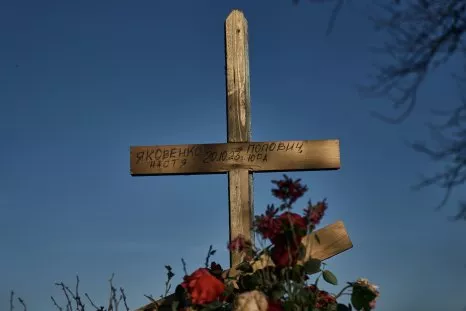Russians' Support for Ukraine War Hits Rock Bottom: Poll
The war in Ukraine has become considerably more unpopular among Russians since the start of the year, according to a survey by an independent Moscow pollster.
In a video address Tuesday to the World Russian People's Council's plenary session, President Vladimir Putin did not mention the war he started by name, but his appeal to Russians' sense of patriotism was direct as he said Moscow was in a "fight for sovereignty and justice."
However, a poll by the research group Chronicles indicates that, ahead of the 2024 election, Putin might have an uphill battle in maintaining the population's support for the war as they feel its economic consequences. The survey found that pro-war Russians are a minority and were outnumbered by those who favor peace.
Restrictive laws in Russia that criminalize criticism of the war can shape poll results, which are often based on questions that require only yes or no answers. But Chronicles, which was founded by Aleksei Miniailo, a Russian opposition politician, and a team of sociologists, says its surveys, in which a series of questions are asked, provide an accurate snapshot of public opinion.
The Moscow-based research group asked 1,199 adults across Russia a series of questions in a phone poll between October 17 and 22. It found that the core of support for the war was only 12 percent, compared with 22 percent in February, one year after the start of what the Kremlin calls a "special military operation."
Miniailo told Newsweek that consistent war support refers to the position of those who back the invasion of Ukraine, do not want Putin to withdraw troops and start peace talks without reaching military goals, and believe that army expenses should be the state budget's priority.
Russians with a consistent pro-peace position were at 18.5 percent in October, a small drop from 20 percent in February. They don't support the war, favor withdrawing troops and peace talks without reaching military goals, and believe social, not military, spending should be the budget priority.
Higher Military Spending
More than half (52 percent) of respondents said they experienced anxiety or depression, an increase from 32 percent in March 2022, a month after the invasion started. A main reason for dissatisfaction with the war is the financial concerns that Russian households are facing.
This week, Putin announced a significant increase in military spending. About 30 percent of the Russian budget will be directed toward the armed forces in 2024.
The poll found that 44 percent of respondents have experienced a decrease in family income, while 20 percent said crucial medicines are no longer available. Only 5 percent expected their income would improve because of an increase in military spending in 2024.
"A decrease in income is one of the core drivers of nonsupport," Miniailo said. "There is a strong correlation between decreasing income and other economic problems and people declaring less support for the war."
He went on: "The whole country has been brought up on stories of the Second World War, about how horrible it was, and now their government has started one.
"So of course people are shocked. They push it as far as possible from their conscience, from their attention, and when they feel the practical consequences of what is happening, it is once again actualized for them," he said.
The number of respondents who would not accept withdrawal from Ukraine without reaching military goals decreased from 47 percent in February 2023 to 33 percent in October 2023.
"This shows that people are tired. They are dissatisfied and don't want this to continue because their life is becoming worse," Miniailo said.
Another poll out this week, by the Carnegie Russia Eurasia Center and the Levada Center, found that Russians were getting tired of the war but were divided about how to end it.
Sixty-eight percent of Russians support continuing the war, 22 percent strongly oppose a cease-fire under any circumstances, and about 20 percent strongly oppose the war. Meanwhile, 72 percent said they support peace talks, although only 19 percent are willing to make concessions to Ukraine for the sake of peace.
Disclaimer: The copyright of this article belongs to the original author. Reposting this article is solely for the purpose of information dissemination and does not constitute any investment advice. If there is any infringement, please contact us immediately. We will make corrections or deletions as necessary. Thank you.
